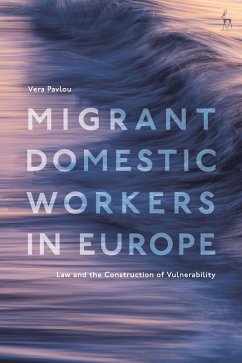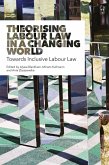This book explores the often neglected, but overwhelmingly common, everyday vulnerability of those who support the smooth functioning of contemporary societies: paid domestic workers.
With a focus on the multiple disadvantages these - often migrant - workers face when working and living in Europe, the book investigates the role of law in producing, reinforcing - or, alternatively, attenuating - vulnerability to exploitation. It departs from approaches that focus on extreme abuse such as 'modern' slavery or trafficking, to consider the much more widespread day-to-day vulnerabilities created at the intersection of different legal regimes. The book, therefore, examines issues such as low wages, unregulated working time, dismissals and the impact of migration status on enforcing rights at work.
The complex legal regimes regulating migrant domestic labour in Europe include migration and labour law sources at different levels: international, national and, as this book demonstrates, also EU. With an innovative lens that combines national, comparative, and multilevel analysis, this book opens up space for transformative legal change for migrant domestic workers in Europe and beyond.
With a focus on the multiple disadvantages these - often migrant - workers face when working and living in Europe, the book investigates the role of law in producing, reinforcing - or, alternatively, attenuating - vulnerability to exploitation. It departs from approaches that focus on extreme abuse such as 'modern' slavery or trafficking, to consider the much more widespread day-to-day vulnerabilities created at the intersection of different legal regimes. The book, therefore, examines issues such as low wages, unregulated working time, dismissals and the impact of migration status on enforcing rights at work.
The complex legal regimes regulating migrant domestic labour in Europe include migration and labour law sources at different levels: international, national and, as this book demonstrates, also EU. With an innovative lens that combines national, comparative, and multilevel analysis, this book opens up space for transformative legal change for migrant domestic workers in Europe and beyond.









